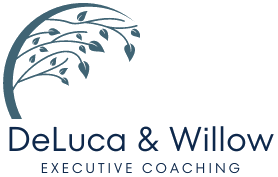Year-End Review
Reflections on career goals by a former Googler
Time flies! It’s that time of year where businesses, who are on an annual calendar for their fiscal year, have that BIG fourth quarter push to close the year strong. Senior leaders want to see the annual progress against the goals which were committed to shareholders (for those publicly traded companies). The results are usually leveraged to set the new goals for the upcoming year. The bigger point is businesses measure and track their goals on a quarterly and annual basis, but why don’t we?
I remember a time as an enterprise salesperson with a large technology company, when I had the largest quota left of the Mississippi as an individual contributor. The accountability for achieving that number started and stopped with me. I had a large team of people working with me to achieve that number; like sales engineers, product specialists, channel account managers, product managers, etc. I could tell you how much revenue I needed to retire every day by the hour. It created an urgency and focus for my efforts! I also preferred to have my year ‘made’ as early into the fourth quarter as possible, which meant orders booked and shipped. We were on a fiscal year that ended in July. And, since it was summer, it was an added incentive to have an easier year-end close, so I could enjoy some much needed and earned vacation time. You know, bask in the sunshine on a beautiful white sandy beach overlooking the clear, blue ocean listening to the waves crash and the seagulls squawk with warm breezes dancing through my hair.
That was one intense year both professionally and personally. While I was crystal clear on my business objectives, my personal life was a complete and total mess; I was a shell of a person. My family didn’t recognize me, in that, I was there ’physically’ but emotionally I wasn’t present. To compound this time, my health was the poorest it has ever been; I had walking pneumonia twice and bronchitis five times in roughly 7 months. My doctors wanted me to take a medical leave. I negotiated for two weeks off (and I quantified it in opportunity cost loss). I share this because IF I had been setting and tracking my personal, including my career, goals on a regular basis, I would have made some serious adjustments, course corrections throughout the year. My health and lost relationships forced the issue to come into the light. I needed the proverbial swift kick before I could make some changes. Amazingly, I exceeded my quota. I was the number one salesperson that year in my region, number three in the nation and again was in the top 10% globally. But, was I successful? I’ve learned a lot in the 15 years since these events happened. One of the most important, which got underscored very recently, is the importance of setting and reviewing your goals on a regular basis. Given the new year is approaching, most people take this time to ‘set resolutions’. A resolution is a firm decision to do or not do something specific, like advance your leadership skills to get ready for that promotion or to stop eating chocolate (although why would you want to do that?) or to start exercising (again).
I would encourage you to think about it differently. Goals aren’t only about fixing what’s broken or getting what you lack. Goals are, as one of my teachers, Dr. Matt James, calls them the ‘juice of life’. They capture what you are about and what you want to create!
Time Flies:
- Start with your Why. I talked about the importance of having an AIM in a former blog post. A career AIM (capitalizing for importance) is like a business vision. It answers the question(s) what and who do you want to become and why is it important to you? It sets a defined direction. If you get stuck on the word ‘career’, substitute life purpose. I like to tell my clients it’s like your North Star. It’s always there, you can navigate by it, it hardly changes. Your career AIM pulls you toward what you value in a career. Dream. Go BIG. It’s best to write it in present tense with a bit of a narrative.
- Tap into your values. Values are the deepest level of our personal programming. They are what is most important to us in a specific area, like career or family. Values are used to determine how we spend time and evaluate the time we spend. Most often we aren’t fully aware of our values. Talking with your trusted advisor(s), mentor or coach can be a helpful next step to uncover what your values truly are for your career (or areas of life).
- Test for ecology. When setting your goals, it’s a vital step to make sure it’s supported in all areas of your life. Ecology in this context simply means, is it good for you and others, community, planet? It’s the interconnectedness between you and others. How many times have you had your health derail your career goals? Or your career impact your relationships?
- See it. It’s helpful to write your goals in present tense and narrative form, including many of the aspects as a business strategy like timing, specific details, measures. A simple way to remember this is the SMART acronym, which I will write about in an upcoming blog post. SMART goals came from research that began in the 60s with Dr. Edwin Locke and Dr. Gary Lantham. Others have added the importance of the mindest, both conscious and unconscious, in goal work, like Richard Bandler and John Grinder founders of Neurolingusitic Programming (NLP). In addition to writing out your SMART goal narrative, it’s helpful to use a vision board; those visual representations of your goal. It can be digital, it can be physical. I’ve seen poster boards, Powerpoint presentations, Pintrest and all options in between. Get your creative on and have FUN.
- Hear it. Adding positive affirmations, mantras or ‘sayings’ that you can leverage regularly (daily, weekly) also assist in incorporating your goal into your daily life.. What will you say and hear when you achieve it? Maybe you have a theme song for your goal and you play it on your way into work. That’s right!
- Feel it. We are in our heads most of the time. When I talk to clients about what will you feel when you’ve achieved this goal?.. It usually takes a while to get to that level of specificity. It’s understandable because we’ve been seeing messages for most of our adult lives about how it’s NOT OK to feel, especially at or about work. However, we are human and we do feel, we just get really good about not paying attention. Visualization or mindfulness exercises that shift awareness to the body can help you begin to tap into the emotional and physical components of the goal and how they ‘show up’ in the body. More to come on this important “F” word..
I hope you found my observations on setting and reviewing goals helpful. As adults we spend the bulk of our waking hours ‘at work’. We only have a finite amount of time on this planet, and you can choose how to spend that time. I wish you much success on your career quest. Yours in balance, learning, growth and harmony. – Melissa DeLuca, CEO

I’m reflecting on my year! And, getting ready for 2018



